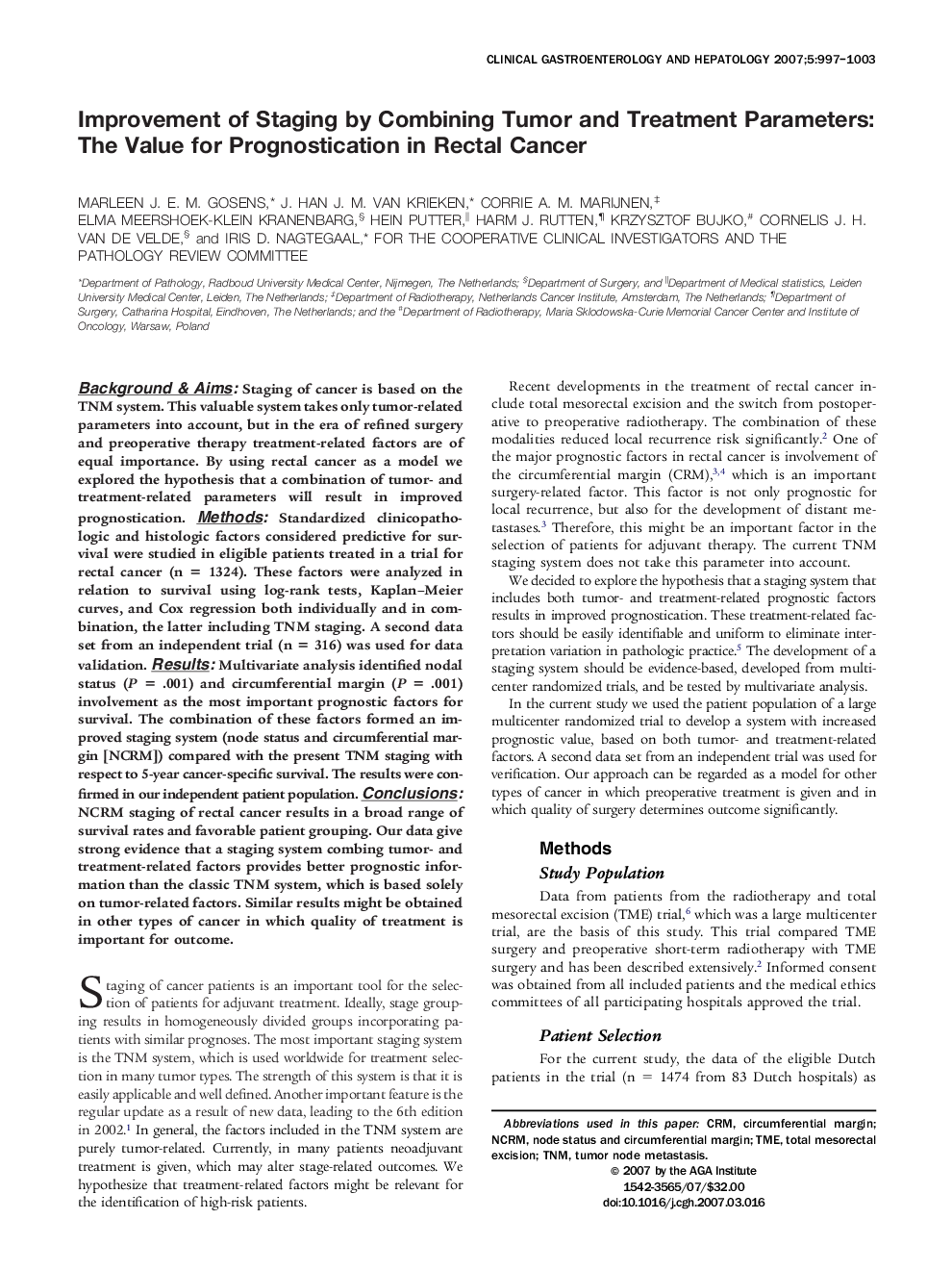| Article ID | Journal | Published Year | Pages | File Type |
|---|---|---|---|---|
| 3285261 | Clinical Gastroenterology and Hepatology | 2007 | 7 Pages |
Abstract
Background & Aims: Staging of cancer is based on the TNM system. This valuable system takes only tumor-related parameters into account, but in the era of refined surgery and preoperative therapy treatment-related factors are of equal importance. By using rectal cancer as a model we explored the hypothesis that a combination of tumor- and treatment-related parameters will result in improved prognostication. Methods: Standardized clinicopathologic and histologic factors considered predictive for survival were studied in eligible patients treated in a trial for rectal cancer (n = 1324). These factors were analyzed in relation to survival using log-rank tests, Kaplan-Meier curves, and Cox regression both individually and in combination, the latter including TNM staging. A second data set from an independent trial (n = 316) was used for data validation. Results: Multivariate analysis identified nodal status (P = .001) and circumferential margin (P = .001) involvement as the most important prognostic factors for survival. The combination of these factors formed an improved staging system (node status and circumferential margin [NCRM]) compared with the present TNM staging with respect to 5-year cancer-specific survival. The results were confirmed in our independent patient population. Conclusions: NCRM staging of rectal cancer results in a broad range of survival rates and favorable patient grouping. Our data give strong evidence that a staging system combing tumor- and treatment-related factors provides better prognostic information than the classic TNM system, which is based solely on tumor-related factors. Similar results might be obtained in other types of cancer in which quality of treatment is important for outcome.
Related Topics
Health Sciences
Medicine and Dentistry
Gastroenterology
Authors
Marleen J.E.M. Gosens, J. Han J.M. van Krieken, Corrie A.M. Marijnen, Elma Meershoek-Klein Kranenbarg, Hein Putter, Harm J. Rutten, Krzysztof Bujko, Cornelis J.H. van de Velde, Iris D. Nagtegaal,
